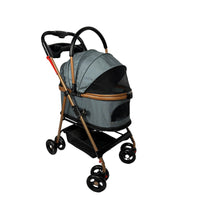
Dog Teeth Cleaning: Essential Tips for Maintaining Your Dog's Dental Health
Maintaining your dog's oral health is crucial for their overall well-being. Just like humans, dogs need regular dental care to prevent dental disease, bad breath, and other health issues. Proper teeth cleaning can help keep your dog's teeth and gums healthy and avoid costly veterinary treatments. Here’s a comprehensive guide to dog teeth cleaning, including why it's important, how to do it, and additional care tips.
Why is Dental Care Important for Dogs?
Dental health is often overlooked in dogs, but it’s vital for several reasons:
- Prevents Dental Disease: Regular cleaning helps prevent plaque buildup, which can lead to tartar formation and periodontal disease. Untreated periodontal disease can result in tooth loss and painful infections.
- Reduces Bad Breath: Dental issues can cause foul-smelling breath. Regular brushing and dental care can help keep your dog’s breath fresh.
- Promotes Overall Health: Oral bacteria can enter the bloodstream and affect other organs, such as the heart and kidneys. Maintaining good dental health reduces the risk of these systemic issues.
- Avoids Costly Vet Visits: Preventative care can reduce the need for expensive dental treatments and extractions due to advanced dental disease.
How to Clean Your Dog's Teeth
1. Start Early and Make It Routine
- Introduce Brushing Gradually: Start dental care early, ideally when your dog is a puppy, to get them accustomed to having their teeth touched. If you have an older dog, introduce brushing slowly and positively.
- Use Positive Reinforcement: Reward your dog with treats and praise to create a positive association with brushing.
2. Choose the Right Tools
- Dog-Specific Toothbrush: Use a toothbrush designed for dogs. These are often softer and come in different sizes to fit your dog’s mouth. A great tool is a silicone toothbrush.
- Dog Toothpaste: Use toothpaste specifically formulated for dogs. Human toothpaste contains fluoride, which is toxic to dogs. Dog toothpaste is flavored to appeal to your pet and helps clean their teeth effectively.
- Teeth Cleaning Toy: Use a teeth cleaning chew toy to help you clean their thoot in a more friendly and fun way for them.
3. Brush Properly
- Use Gentle, Circular Motions: Brush your dog’s teeth gently using circular motions, focusing on the areas where plaque tends to build up, such as the back teeth.
- Brush Daily: Ideally, brush your dog’s teeth daily. If daily brushing isn’t possible, aim for at least a few times a week.
4. Check for Problems
- Inspect Teeth and Gums: Regularly check your dog’s mouth for signs of dental issues, such as redness, swelling, or bleeding gums, as well as loose or missing teeth.
- Visit the Vet: Schedule regular veterinary check-ups to have your dog’s teeth professionally cleaned and examined. Your vet can also offer advice on your dog’s specific dental care needs.
Proper dental care is an essential aspect of maintaining your dog's overall health. By establishing a regular teeth-cleaning routine and incorporating additional dental care practices, you can help prevent dental disease, freshen your dog’s breath, and promote a healthier, happier life for your furry friend. Always consult with your veterinarian for personalized advice and to ensure your dog’s dental health is on track.
Share




